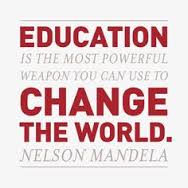A Walk Through A Slide: I decided to choose this picture because it shows the reality of anonymous online bullying. This image is from a website called Formspring. I, like most people, have had accounts  with Formspring and many other social media websites such as Facebook, Twitter, Instagram, etc. They are just addicting to be on.
with Formspring and many other social media websites such as Facebook, Twitter, Instagram, etc. They are just addicting to be on.
This picture fit in perfectly with my narrative because throughout the whole narrative, bullying and cyberbullying were the main topics. In this particular picture, cyberbullying is occurring because people are saying mean things such as “you are fat”, “do you try to look ugly or do you always look like that?” and “they would never like you”, which are all hurtful comments. For this slide in my pecha kucha presentation, Kevin Kelly acknowledged how social media would expand beyond what they originally thought. Formspring really took over in 2006-2010. This was not like any other social media website like Facebook or Twitter. This was just anonymous comments from people. I chose Kevin Kelly’s article, We Are the Web because it made me think of the various amounts of social media websites there actually are. When I think social media, I think Facebook, Twitter and Instagram. The more social media, the more cyberbullying occurs.
I felt as if this picture fit in perfectly with my slides because it shows a real life example of cyberbullying. I think this picture stood out to most people because of the hurtful comments that people do make and can relate to it, even if it hasn’t happened to them. This picture builds on my argument by giving proof. Anyone can say things like “I hate you” or “go away” but those are different. Cyberbullying has to go a little deeper and has to impact a person. For example, in the picture the second response says, “I try to look pretty but…” which shows it has impacted this person’s confidence. Overall, I’m very glad I found this picture because I think it helped describe and prove our point about how bullying and cyberbullying affect people.
If I were to change one thing, I would have changed the order in which we discussed things. For example, I think Facebook should have been included and the first topic of discussion since it is one of the biggest social media cites with a lot of bullying.
What I learned about my blog topic: My blog topic was future teachers of America. I thought this was a very fitting topic for my group since we are all aspiring to become teachers. I have been learning all about the teaching process throughout my years in college, whether at Rowan or another school. I felt as if this was an easy topic to relate anything to because we are always learning new things.
Each article in the readings, I was able to relate to the topic of teaching. For example, Bolter’s article and the Memex article. Bolter’s article was about the technology in writing so I related it to teaching writing in the classroom multiple ways. For the memex article, I was able to compare how technology helps our writing today and how the memex was used back then. These articles gave me a new perspective on writing and ideas that I didn’t even know were possible. It showed me how we can still get by even with the use of little technology or tons of technology.
For my outside readings, I found it very interesting because there were so many topics I could choose from. My favorite, however, was the Ellen Degeneres blog post. I have been watching The Ellen Show for many years, it is my favorite daytime talk show. Constantly, Ellen and her team have been helping teachers because they understand how difficult it can be. Just the little things can go such a long way. I felt as if this was a great opportunity to give credit to Ellen because some day I hope I get recognized as an outstanding teacher.
Overall, my blog topic was perfect for me. I enjoyed reading these articles whether required or not because they were pertaining to my future. It impacted me in a way that many people won’t understand because of their choice of career. Education is such an important thing that people should not take for granted. Also, I hope as a future educator that people start to see what a different we truly make in student’s lives.

 nd computers, have been an incredible breakthrough for everyone, especially teachers. The teachers are the ones who introduce the computer to the children and in this day and age the teachers are expected to teach the children about how to use a computer. I remember a time when there was a computer class where we, as children, would go and experiment and learn with the computers. My second grade class goes to computer class and they are learning about penguins and creating a Power Point presentation. Now, the children come to school with a little bit of knowledge about computers and the internet. The internet is part of everyone’s life, and it is at everyone’s fingertips at any given time.
nd computers, have been an incredible breakthrough for everyone, especially teachers. The teachers are the ones who introduce the computer to the children and in this day and age the teachers are expected to teach the children about how to use a computer. I remember a time when there was a computer class where we, as children, would go and experiment and learn with the computers. My second grade class goes to computer class and they are learning about penguins and creating a Power Point presentation. Now, the children come to school with a little bit of knowledge about computers and the internet. The internet is part of everyone’s life, and it is at everyone’s fingertips at any given time. s a great thing. My children will never remember a day where smart phones aren’t a thing, and the sound of dial up internet in the middle of the night. A day where the house phone couldn’t be used at the same time as the internet is gone; my children are not even familiar with a house phone. The internet has changed everything, including the way we learn in school! The computer is a great learning tool for children and teachers both, but sadly it can also be a great distraction for young children who only see the computer at home for game playing. Everyone likes to play games, but the connection between the computer and games can be confusing for very young children.
s a great thing. My children will never remember a day where smart phones aren’t a thing, and the sound of dial up internet in the middle of the night. A day where the house phone couldn’t be used at the same time as the internet is gone; my children are not even familiar with a house phone. The internet has changed everything, including the way we learn in school! The computer is a great learning tool for children and teachers both, but sadly it can also be a great distraction for young children who only see the computer at home for game playing. Everyone likes to play games, but the connection between the computer and games can be confusing for very young children. In 1945, everything was beginning to revolutionize. Technology was growing and so was knowledge. The knowledge had to go somewhere for people to use. A problem was storing and organizing things to be used as needed in the future. “A Memex is a device in which an individual stores all his books, records, and communications, and which is mechanized so that it may be consulted with exceeding speed and flexibility. It is an enlarged intimate supplement to his memory”,
In 1945, everything was beginning to revolutionize. Technology was growing and so was knowledge. The knowledge had to go somewhere for people to use. A problem was storing and organizing things to be used as needed in the future. “A Memex is a device in which an individual stores all his books, records, and communications, and which is mechanized so that it may be consulted with exceeding speed and flexibility. It is an enlarged intimate supplement to his memory”,  mex may eliminate the stage where someone would have to terminate the process because they have forgotten information.
mex may eliminate the stage where someone would have to terminate the process because they have forgotten information.